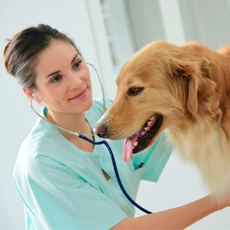- Afrikaans
- Albanian
- Amharic
- Arabic
- Armenian
- Azerbaijani
- Basque
- Belarusian
- Bengali
- Bosnian
- Bulgarian
- Catalan
- Cebuano
- Corsican
- Croatian
- Czech
- Danish
- Dutch
- English
- Esperanto
- Estonian
- Finnish
- French
- Frisian
- Galician
- Georgian
- German
- Greek
- Gujarati
- Haitian Creole
- hausa
- hawaiian
- Hebrew
- Hindi
- Miao
- Hungarian
- Icelandic
- igbo
- Indonesian
- irish
- Italian
- Japanese
- Javanese
- Kannada
- kazakh
- Khmer
- Rwandese
- Korean
- Kurdish
- Kyrgyz
- Lao
- Latin
- Latvian
- Lithuanian
- Luxembourgish
- Macedonian
- Malgashi
- Malay
- Malayalam
- Maltese
- Maori
- Marathi
- Mongolian
- Myanmar
- Nepali
- Norwegian
- Norwegian
- Occitan
- Pashto
- Persian
- Polish
- Portuguese
- Punjabi
- Romanian
- Russian
- Samoan
- Scottish Gaelic
- Serbian
- Sesotho
- Shona
- Sindhi
- Sinhala
- Slovak
- Slovenian
- Somali
- Spanish
- Sundanese
- Swahili
- Swedish
- Tagalog
- Tajik
- Tamil
- Tatar
- Telugu
- Thai
- Turkish
- Turkmen
- Ukrainian
- Urdu
- Uighur
- Uzbek
- Vietnamese
- Welsh
- Bantu
- Yiddish
- Yoruba
- Zulu
Nov . 07, 2024 21:46 Back to list
Administering Antibiotics to Dogs for Health Management and Treatment Options
Understanding the Use of Antibiotics in Dogs Benefits and Responsibilities
Antibiotics are a critical component of modern veterinary medicine, playing a vital role in treating infectious diseases in dogs. However, their use must be approached with caution and responsibility. This article delves into the reasons for prescribing antibiotics to dogs, the potential benefits and risks associated with their use, and the importance of responsible antibiotic stewardship.
The Need for Antibiotics in Dogs
Dogs, much like humans, can suffer from various bacterial infections that can range from mild to life-threatening. Common conditions treated with antibiotics include urinary tract infections, skin infections, pneumonia, and more. When a veterinarian suspects a bacterial infection, they may prescribe antibiotics to help eliminate the pathogens and promote recovery.
The timely administration of antibiotics can significantly improve a dog's health and quality of life. For instance, a simple skin infection that is left untreated can develop into a more severe condition if harmful bacteria multiply and spread. Therefore, antibiotics can be lifesaving, providing benefits that extend beyond mere symptom alleviation.
The Advantages of Using Antibiotics
1. Effective Treatment Antibiotics are designed specifically to target bacteria. When administered correctly, they can effectively eliminate harmful organisms, allowing the dog's immune system to restore health.
2. Prevention of Complications In cases where infections are not addressed promptly, complications such as sepsis or the spread of infection to other organs can occur. Antibiotics help to mitigate these risks, contributing to faster recovery.
3. Improved Quality of Life By treating infections quickly and effectively, antibiotics help improve a dog's overall well-being and comfort. Dogs that receive appropriate antibiotic treatment often return to their normal selves much sooner than those who do not.
The Risks of Antibiotic Use
giving dogs antibiotics

Despite their benefits, the use of antibiotics in dogs is not without risks. One of the most significant concerns is antibiotic resistance. This occurs when bacteria evolve mechanisms to withstand the effects of drugs designed to kill them. As a result, infections may become more difficult to treat, leading to prolonged suffering and increased veterinary costs.
Additionally, antibiotics can disrupt a dog's natural gut microbiome, which plays a crucial role in digestion and overall health. An imbalance in gut bacteria can lead to gastrointestinal issues, such as diarrhea or vomiting.
Responsible Use of Antibiotics
To mitigate the risks associated with antibiotic use, responsible stewardship is essential. Pet owners should follow these guidelines
1. Consult a Veterinarian Always seek professional advice before administering antibiotics. A veterinarian will conduct a thorough examination to determine if antibiotics are necessary and which specific type would be most effective.
2. Complete the Prescribed Course If antibiotics are prescribed, it is vital to complete the entire course, even if the dog appears to have recovered. Stopping treatment early can lead to incomplete eradication of the infection and contribute to resistance.
3. Monitor for Side Effects Pet owners should keep a close eye on their dogs for any adverse reactions or side effects. Immediate veterinary attention may be required if any concerning symptoms arise.
4. Practice Preventative Care Regular veterinary check-ups, vaccinations, and good hygiene practices can help minimize the risk of infections. Keeping dogs healthy is a proactive approach to reducing the need for antibiotics.
Conclusion
The use of antibiotics in dogs can be a double-edged sword, providing essential treatment while also posing risks of resistance and side effects. Responsible use, guided by veterinary expertise, is crucial for ensuring the safety and health of our canine companions. Pet owners must remain informed and proactive in their approaches to antibiotic use, ensuring that their furry friends lead healthy, vibrant lives. By doing so, we not only protect our pets but also contribute to the broader efforts to combat antibiotic resistance in both veterinary and human medicine.
-
Guide to Oxytetracycline Injection
NewsMar.27,2025
-
Guide to Colistin Sulphate
NewsMar.27,2025
-
Gentamicin Sulfate: Uses, Price, And Key Information
NewsMar.27,2025
-
Enrofloxacin Injection: Uses, Price, And Supplier Information
NewsMar.27,2025
-
Dexamethasone Sodium Phosphate Injection: Uses, Price, And Key Information
NewsMar.27,2025
-
Albendazole Tablet: Uses, Dosage, Cost, And Key Information
NewsMar.27,2025













